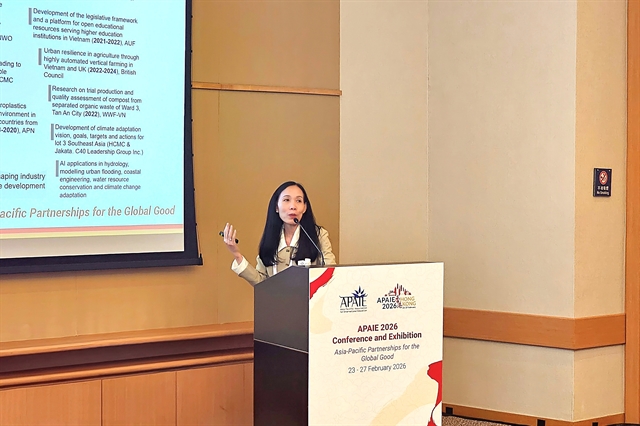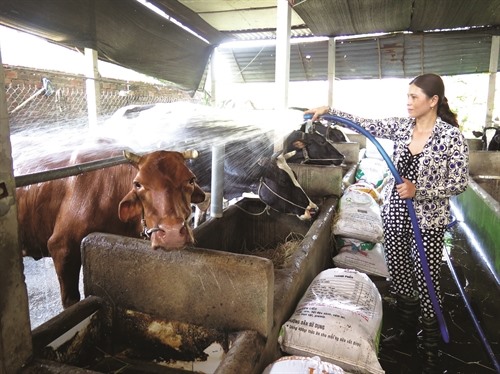 Society
Society

The HCM City Department of Agriculture and Rural Development has advised dairy farmers having cows with low milk yields to switch to higher-yield cows or oxen for their meat.
 |
| HCM City plans to have around 100,000 dairy cows by 2020, with each producing an average of 7,700 kilogrammes of milk a year, up 33 per cent from 2010. — VNA/VNS Photo |
HCM CITY — The HCM City Department of Agriculture and Rural Development has advised dairy farmers having cows with low milk yields to switch to higher-yield cows or oxen for their meat.
The city, which has the largest number of dairy cows in the country, has begun a programme to support farmers make the switch.
Farmers who decide to breed oxen will get subsidies for artificially inseminating their cows to produce hybrid oxen that yield large quantities meat.
The hybrids can reach weights of 380-400 kilo with 18 months.
As of last July the city had more than 95,000 milch cows -- with Củ Chi, Hóc Môn and Bình Chánh districts accounting for the largest numbers -- down 2 per cent year-on-year, according to the department.
The decline has been attributed to dairy companies in the city reducing their purchase of fresh milk.
Vinamilk, for instance, has this year increased quality standards for the milk it buys.
The company has informed farmers that next year it will only sign contracts to buy milk from those who have more than five cows, and that number will rise to more than eight in 2018.
Last year the city had more than 2,700 households with less than five cows.
Lê Văn Tám, a farmer in Củ Chi District’s Thông Tây Hội Commune, said: “Now farmers only increase their dairy cow herd if they have signed a contract with a dairy processing company.”
In Củ Chi, around 1,200 farmers have switched from dairy cows to oxen, according to the Củ Chi District Farmers Association.
Lê Thị Thanh Huyền, who has two oxen farms with more than 400 head in Củ Chi’s An Nhơn Tây and Nhuận Đức communes, said her family has been breeding hybrid oxen with high meat yields since 2007.
But the price of beef has reduced to around VNĐ64,000 a kilogramme because of the large import of oxen for meat, resulting in lower profits from raising oxen, she said.
Oxen breeding has been widespread in Củ Chi for many years, but farmers have not benefited from a city programme to provide soft loans for raising economically viable livestock, which does not cover oxen.
District authorities have petitioned the city that farmers switching to oxen should be provided the loans.
Planning
The city plans to have around 100,000 head of dairy cattle by 2020, with each animal yielding an average of 7,700kg of milk a year (or 21kg a day), up 33 per cent from 2010, according to the Department of Agriculture and Rural Development.
There will be 30,000 oxen supplying 10,000 tonnes of meat.
It also expects the cows to calve 25,000 – 30,000 cows and 7,000 oxen a year.
The city will apply Vietnamese good agricultural practices (VietGAP) in breeding dairy cows. — VNS




